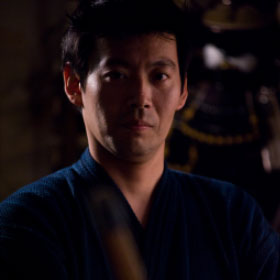Need Kendo Instructions?
You Got It!
You Got It!
How to stay motivated to improve
by Bill
(Canada)
I've now reached a point in my kendo where I feel like I've hit a brick wall, and I'm not improving.
I've been practising kendo for about one hour per week for almost a year. I'm in bogu now and have graded at 4th kyu.
Practice is difficult of course, that’s to be expected; but mostly, it is very confusing. I never really know what waza to use and when to use it.
And just when I think I've done a technique correctly, there are always three other things that I'm not doing correctly. As a result, it's becoming more and more difficult to stay motivated for practice.
I understand that kendo is a lifelong learning experience, but what can I do to keep myself motivated?
What can I do to make sense of the multitude of techniques? As a beginner, what do you suggest I focus on to advance?
I hope this post also helps other beginners who might be feeling the same way.
Thank you,
Bill
Answer: Thank you for your post. Indeed, this will help a lot of people, if I or others can give you some good answers! Certainly good question, though.
Some people are motivated because they want to complete well in tournaments. Some are motivated because they want to reach as high as possible in their kendō rank. Others get motivated to find out their weakness through kendō.
I can see one clear problem. Many beginners learn techniques too early. It is OK if they can coordinate their sword, body and arm movements but many cannot.
The question I want to ask is…
Would you take more time to learn the basics again? In other words, will you quit if you have to take more time in learning the basics and not doing sparing at
The basics is always the key. When you cannot perform the basics smoothly, you cannot perform techniques properly.
My father started kendō at the age of 55 (ref: Unknown kendoist). He worked on one technique at the time; especially men strike (just a normal straight men).
Having said that, if you want to know when and what technique should be used,
- Ask your teacher/sempai (senior students) : i.e. understanding the principle of the technique.
- Apply the technique in sparing with someone lower than you: i.e. testing the principle
- Think why it worked or did not worked in sparing: i.e. analysing your technique
- Ask your teacher/sempai what you are doing wrong: i.e. changing your perception
- Apply the technique in sparing with someone lower than you: i.e. testing the technique again
- Apply the process 3 to 5 until you master the technique.
- Apply the technique on someone with higher rank than you: i.e. testing your true capability
- Go back to 3 and repeat the process.
This is in “Interview with Alex Bennett” but the basics is the strongest.
Simply you cannot easily execute a technique and achieve a valid cut; especially against younger people or experienced ones.
In such a case, we must try again and again in the same way or different ways. You can change a distance, your shinai movements (pushing down your opponent’s shinai), timing to strike, speed of your body movements and so on.
I do not know if you can get motivated by doing the learning process shown above, but if you can enjoy the process, you will improve fairly quickly.
Many of us want a quick result. I completely understand that. That is why I strongly tell you and myself (I like a quick result a lot!) to relax and enjoy the moment of learning process.
Hope this helps.
Comments for How to stay motivated to improve
|
||
|
||
|
||
|
||
|
||
|
||
